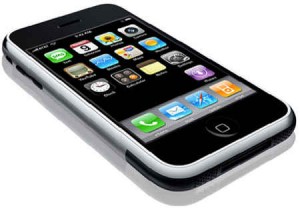 I’m mid 2011 I wrote a post titled Competition. Things in my universe had heated up and many of the companies I was an investor in were facing lots of competition. It’s 18 months later and there’s 10x the amount of competitive dynamics going on, some because of the maturity, scale, and market leadership of some of the companies I’m an investor in; some because of the increased number of companies in each market segment, and some based on the heat and intensity of our business right now.
I’m mid 2011 I wrote a post titled Competition. Things in my universe had heated up and many of the companies I was an investor in were facing lots of competition. It’s 18 months later and there’s 10x the amount of competitive dynamics going on, some because of the maturity, scale, and market leadership of some of the companies I’m an investor in; some because of the increased number of companies in each market segment, and some based on the heat and intensity of our business right now.
I wrote a few more posts about competition but then drifted on to other things. But I came back to it this morning as I find myself thinking about competition every day. Yesterday, I was at the Silicon Flatirons Broadband Migration Conference hosted by my friend Phil Weiser. I go every year because it’s a good chance for me to see how several of the parallel universes I interact with, namely government, academics, broadband and mobile carriers, incumbent technology providers, and policy people think about innovation in the context of the Internet.
News flash – most of them think about it very differently than I do.
One thing that came up was the idea of creating the best product. This has been an on and off cliche in the tech business for a long time. For periods of time, people get obsessed about how “the best product will win.” Then, some strategy consultants, or larger incumbents, use their market power to try to create defenses around innovation, and suddenly the conversation shifts away from “build the best product.” And then the entrepreneurial cycle heats up again and the battle cry of the new entrepreneur is “build the best product.”
This isn’t just a startup vs. big company issue. I remember clearly, with amazement, the first time I got my hands on an iPhone. Up to that point I was using an HTC Dash running Windows Mobile 6.5. It was fine, but not awesome. I remember Steve Ballmer in a video mocking the iPhone.
We all know how this story has played out.

I remember a world when Microsoft and RIM were dominant. When Apple and Google didn’t have a product. And when people talked about “handsets”, WAP, and we squinted at our screens while pounding on keyboards that were too small for our fingers. Next time you are in a room full of people, just look around at the different phones, tables, and laptops that you see.
In my startup world, the same dynamics play out. Building the “best product” doesn’t only mean the best physical product (or digital product). It doesn’t just mean the best UI. Or the best UX. It includes the best distribution. The best supply chain. The best customer experience. The best support. The best partner channel. The best interface to a prospective customer. I’m sure I’ve left categories out – think about the idea of “the best complete product.”
This is getting more complicated by the day as technologies and products increase in interoperability with each other at both the data, network, application, and physical level. That’s part of the fun of it. And being great at it can help you dominate your competition.
Give me the best product to work with any day of the week. But make sure you are defining “product” correctly.